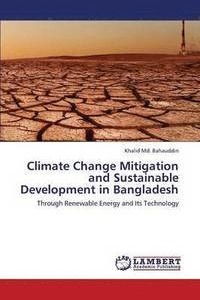
Liknande böcker
Mitigation to Climate Change Through EMS Implementation : Reduction of GHGs emission in a carpet industry, in Nepal
Bok av Prajwal Thapa
Nepal's contribution on global greenhouse gas emission is almost negligible compared to other developing countries however the carpet industries are considered as one of the major polluting industries. The major energy (more than 90%) is the traditional source obtained from fuel wood, agricultural residue and animal waste while the rest is from commercial fuel such as petroleum products and electricity. The study was carried out in Paramount Carpet Industry in Kathmandu. It focuses on the effectiveness of EMS implementation in the industry mainly in terms of reducing resource consumption and hence reducing greenhouse gas emission for mitigation to climate change. To evaluate the effectiveness of EMS implementation in the industry, comparison of the situation before and after its implementation was carried out. It also shows the calculation of carbon dioxide emissions from fuel combustion for which primary data is utilized and findings show that the total greenhouse gas emission from Paramount Carpet Industry after one year of EMS implementation has reduced by 6.06% per ton of dyed woolen yarn.







